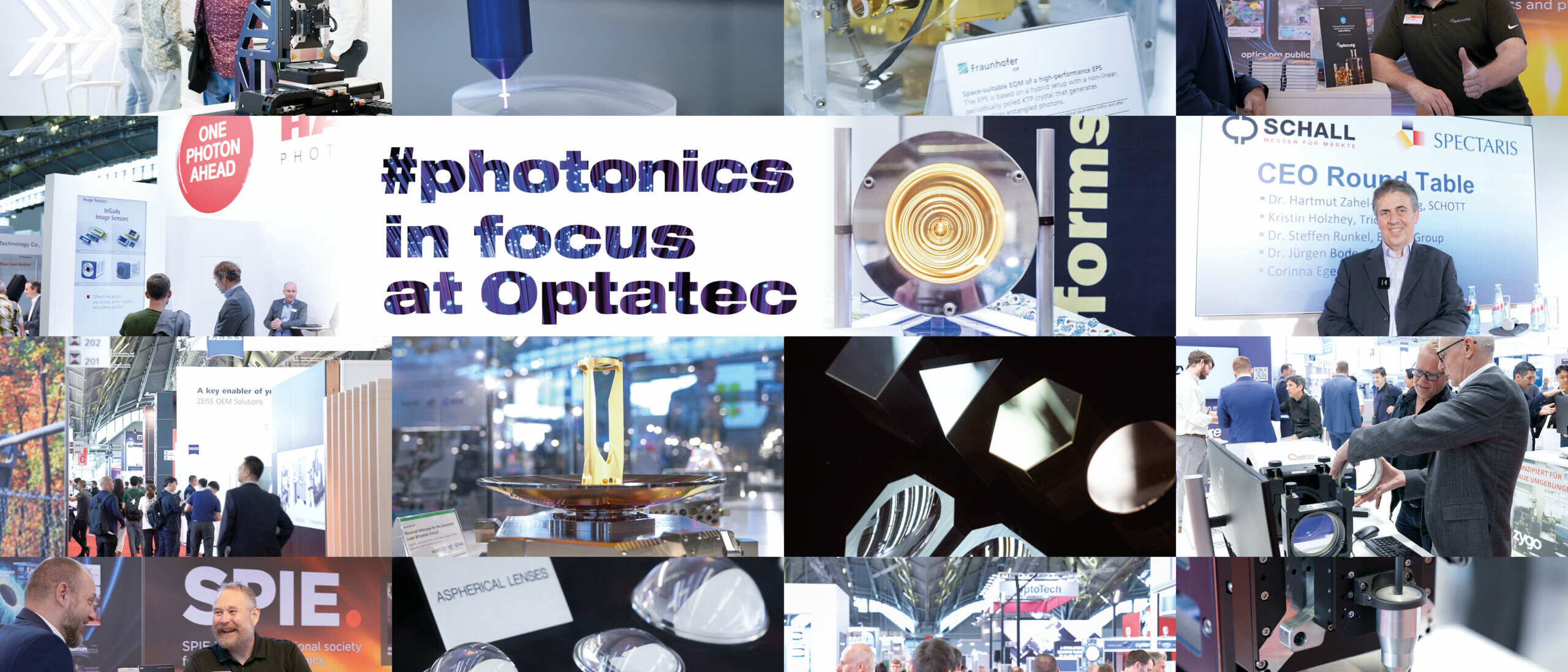Photonics – Enabler for Sustainability and Quantum Technology

Quantum Year 2025 was launched in Berlin in mid-January 2025 – an important step for Germany as an innovation hub. The German Physics Society has declared “Quantum 2025” its motto for the year, and will use it to draw attention to the potential offered by quantum technology as a future technology. This is also generating enormous momentum for the next Optatec international trade fair for optical technologies, components and systems, which will take place in Frankfurt from the 5th through the 7th of May, 2026.
The Spectaris German industry association welcomes the “Quantum 2025” initiative, which highlights the economic and technological importance of this key technology. Photonics – the science and technology of light – is of central importance for quantum technology. It’s a key enabler for quantum technology and serves as an essential building block for many quantum technology applications. Light in the form of photons is the basis for reliable quantum communication, highly precise quantum sensors and photonic quantum computers. Without the technologies associated with light, many innovations would be inconceivable within a broad range of industry sectors.
The Photonics Industry as a Driving Force for Sustainability and Quantum Technologies
There’s a strong focus on R&D in the field of photonics. Dr. Wenko Süptitz, director of the photonics division at Spectaris, the German Industry Association for Optics, Photonics, Analysis and Medical Technology, reports in Berlin that Germany is the European leader for patent applications in the field of photonics. “Photonics technologies make high-tech solutions for new recycling processes possible, as well as reduced materials consumption, CO2 emissions and power consumption, for example”, stressed Süptitz. “Photonics makes a significant contribution to reducing greenhouse gas emissions and to achieving the goals of the Paris Climate Agreement.”
The photonics industry in Germany is already a global leader and a major catalyst for the development of quantum technologies. The global market potential inherent in this technology is growing – it’s important for Germany’s competitiveness and it’s generating new impetus for growth. Photonics components, such as those developed by Spectaris member companies, play a central role in transferring quantum technology from basic research into industrial practice. The growth potential afforded by photonics, with its above-average R&D expenditures amounting to nearly 10%, is considerable. According to estimates compiled by Tematys consultancy firm, the global market for photonics components should grow by an average of 8% to 9% by 2027, and the global photonics market by approximately 6% per year.
Photonics – Paving the Way to the Quantum Age
With the launching of Quantum Year 2025, Germany is reinforcing its claim to a leading role in the development and application of quantum technologies. The photonics industry will thus make a strong contribution to advancing towards the quantum age. Optatec has a strong focus on photonics and is an impressive showcase for the fascinating topic of light. Optatec is an indispensable platform for Spectaris as well: “Optatec is one of the most important trade fairs anywhere in the world for our members from the optical technologies and photonics sectors for presenting their state-of-the-art products and latest innovations,” emphasised Süptitz.
The next Optatec in Frankfurt will once again present important applications targeted at dealing with current and future ecological, economic, social and technical challenges from the 5th through the 7th of May, 2026. This is why the optical technologies are among the most important future trends of the 21st century. The German photonics industry encompasses roughly 1000 companies with a total of approximately 190,000 employees who generate annual sales amounting to €54 billion. Jena and Berlin are major centres for photonics research and industry, and other photonics hubs are located in the German states of Hesse, Baden-Württemberg and Bavaria. Germany commands a 40% share of the European photonics market, followed by the United Kingdom and France with 15% each. Around 45% of all exports from German photonics companies go to European countries, and about half of Germany’s photonics imports come from Asia. According to Spectaris, the importance of the USA has increased as a trading partner for photonics.
The next Optatec, taking place in Frankfurt from 5 to 7 May 2026, is being eagerly anticipated.